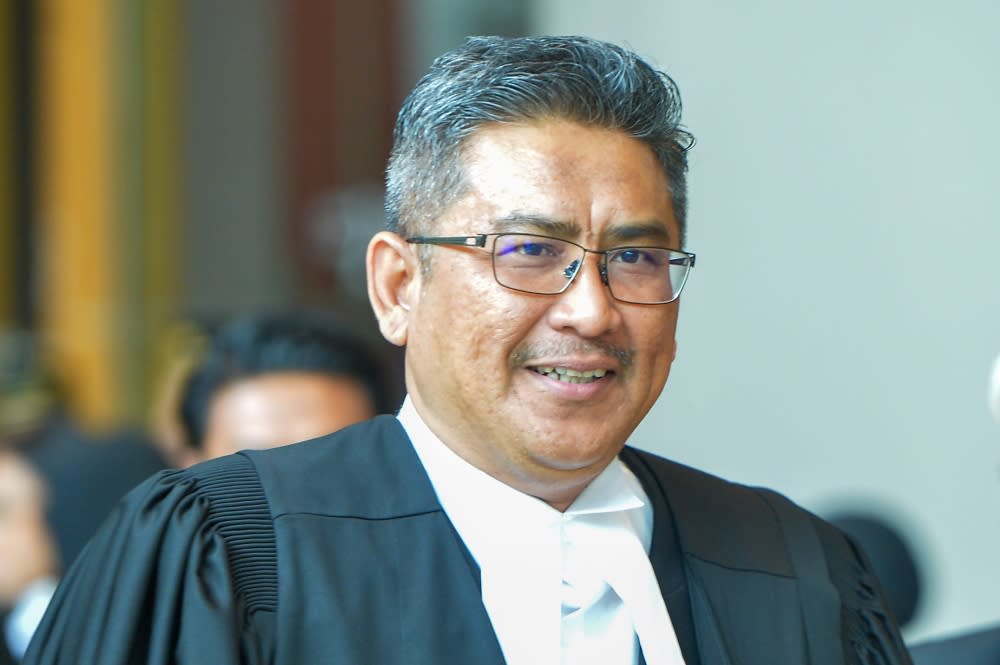Corruption watchdog wants Putrajaya to expedite separation of attorney general and public prosecutor roles

KUALA LUMPUR, Jan 16 — The Centre to Combat Corruption and Cronyism (C4 Centre) today urged the government to separate the role of the Attorney General (AG) and Public Prosecutor without delay.
Pending its completion, the anti-corruption advocates urged the AG to commit to full transparency with regard to high-profile criminal prosecutions, particularly where the prosecution is discontinued; in tandem with the separation of the offices of the AG/PP, the government should draft prosecutorial guidelines to steer the conduct of prosecutors in a fair and uniform manner.
“In the absence of clear guidelines governing prosecutorial discretion, alternative measures such as the publication of reasons is imperative to secure public confidence.
“The public must be assured that all persons shall receive the same treatment regardless of who they are, and if decisions are made which conflict with this fundamental principle enshrined under Article 8 of the Federal Constitution, it is incumbent upon the AG/PP to provide sufficiently particularised reasons to justify those decisions,” C4 said in a statement.
This call comes after the comments made by AG Datuk Ahmad Terrirudin Salleh at the Opening of Legal Year 2024 event yesterday – where he relied upon the plain language of the law to contend that the Public Prosecutor (PP) has no duty to provide reasons in the exercise of his discretionary powers, including reasons for seeking the withdrawal of charges against an accused.
“For AG Terrirudin to dismiss any duty to provide reasons for his exercises of power – in his maiden speech since his appointment took effect on September 6, 2023 – is inconsistent with core principles of transparency and good governance and signals a troubling approach to the exercise of prosecutorial discretion under his leadership moving forward.
“It is important to bear in mind that the AG (who is appointed on the binding advice of the Prime Minister) holds the office of the PP ex officio.
“In other words, a political appointee is also empowered with general discretion over the conduct, control and direction of criminal prosecutions,” the statement wrote.
“Malaysia has witnessed high-profile instances of charges against politically connected persons being withdrawn or dropped by the prosecution, often with little to no explanation.
“This includes Lim Guan Eng’s discharge not amounting to an acquittal (DNAA) over corruption charges after the prosecution applied for a DNAA in 2018, and Musa Aman’s acquittal for 46 charges of corruption and money laundering after the prosecution applied to withdraw the charges in 2020,” the C4 Centre said.
The corruption watchdog also cited the most recent high-profile example of this was the successful application for a DNAA in Deputy Prime Minister Ahmad Zahid Hamidi’s Yayasan Akalbudi trial.
“This application was made by the prosecution after a prima facie case was made out against Zahid and he was ordered to enter his defence on all 47 charges, meaning that the prosecution had already proven through credible evidence each ingredient of the offences Zahid was charged with would warrant a conviction if unrebutted. Reasons to substantiate the application were only released following public outcry.
“Criticism of this state of affairs has been long-standing, as there is an inherent possibility that decisions regarding prosecutions of key political figures may be made upon political considerations,” C4 added.
It noted that the Anwar administration has made public commitments regarding the eventual separation of the offices, but little visible progress has been made.
“Furthermore, strict adherence to the plain wording of legal provisions should not be used as an excuse for failing to account for atypical decisions.
“As the Federal Court noted in the case of Sundra Rajoo Nadarajah v Menteri Luar Negeri, Malaysia, the wide discretion afforded to the AG/PP under Article 145 of the Federal Constitution is not unfettered or absolute.
“If public confidence in the integrity of national institutions is to be upheld, AG Terrirudin must understand that his expressed views are paternalistic and dismissive of the importance of public accountability.
“A lack of transparency directly results in the erosion of the people’s trust, which the AG must seek to avoid at all costs,” it said.
A clear example of how discretion can be exercised in a manner which upholds good governance and public interest was the decision of Dewan Rakyat Speaker Tan Sri Johari Abdul to allow debate upon the Auditor General’s Report 2021 last year, despite strong opposition by the Opposition bloc.
Under Article 107 of the Federal Constitution, the Auditor General’s reports are only required to be “laid before” the Dewan Rakyat.
“However, the Speaker’s commitment to nevertheless ensure an open debate on the report illustrates how discretion is exercised in the interest of public participation and transparency despite there being no legal requirement to do so.
“AG Terrirudin should adopt a similar understanding with regard to his role – although the law does not obligate the publication of reasons for prosecutorial decisions, this ought to be done anyway where it lies in the public interest,” C4 said.



